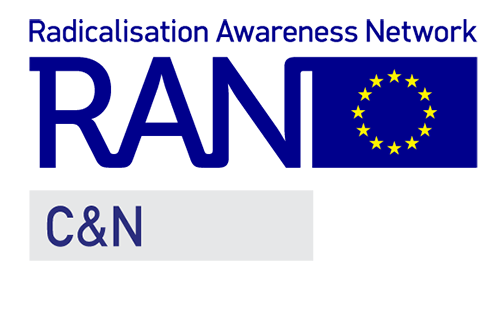
Borderline content in the context of the prevention and countering of violent extremism (P/CVE) is considered an umbrella term, referring to content that is not explicitly considered illegal but may still promote extremist narratives, incite violence, or have a polarising effect on society as a whole. Often it is referred to as ‘lawful but awful’. Through memes, (dog whistle) symbols and other types of content, extremist narratives are disseminated while moderation efforts or prosecution are often evaded.
This meeting focuses on how practitioners can deal with borderline content such as hate speech and meme culture, and how this relates to issues of public trust. Through meme culture and humour, borderline content is spread by extremists as a way of disguising their hateful messages, attracting attention, and evading censorship. The boundaries of what is acceptable or tolerated are tested through this type of content, which can escalate the level of violence or radicalisation propagated.
The complexity of borderline content is the constant dilemma between the protection of fundamental rights, such as freedom of speech or expression, and the fact that harm can be caused by this type of content, and that it may contribute to the normalisation of extremist views within society. Too much regulation could further erode the already low public trust in institutions (government, media etc.), as it is quickly seen as censorship. Tech companies are trying to navigate their way in the complex landscape of disinformation and political influence (for example, see this article), but what will that mean for the spread of borderline content? The position of practitioners in this can also be sensitive: challenging borderline content could for instance undermine practitioners’ own trustworthiness.
The aim of this meeting is to provide guidelines for practitioners on dealing with borderline content while (re)building public trust in their P/CVE work.
Relevant questions:
- How are extremists using borderline content, specifically hate speech, memes, and symbols, to spread their narratives?
- When does borderline content become illegal content (i.e. when does it cross the border)?
- What are the main challenges and risks that borderline hate speech poses to public trust and social cohesion within EU Member States?
- How can practitioners deal with borderline content and at the same time promote public trust from a bottom-up perspective?
Target group
For the RAN Practitioners C&N Working Group meeting on ‘How to deal with borderline content (related to hate speech, meme culture, humour etc.) from the perspective of public trust?’, we are looking for first-line practitioners and (academic) experts who are interested in participating in the meeting.
Please note that this is a face-to-face event and requires travel. Your travel will be arranged by RAN but do keep in mind that it will take up time. By registering, you confirm your availability and willingness to travel for this meeting.
For this meeting we are looking for:
- P/CVE practitioners from diverse backgrounds (such as law enforcement, youth work, social work, exit/rehabilitation work, prison work, local governments etc.) who are facing the influence of borderline content in their work.
- Practitioners from the C&N constituency who are experienced in dealing with borderline content, promoting public trust from a bottom-up approach, as well as in designing and executing counter- and alternative-narrative campaigns.
- Experts on technological developments in online communications.
- Experts from (big) tech and social media companies as well as from smaller tech companies who have experience in dealing with borderline content on their platform(s).
Background information
GIFCT. (2023). Borderline Content: Understanding the Gray Zone.
RAN. (2021). It’s not funny anymore. Far-right extremists’ use of humour.
Deadline and practical information
If you are interested in participating in this meeting, please answer the questions in the following registration form.
Deadline: please fill in the form by Monday March 18. We will invite participants (and contributors) based on the answers given in the registration form and the order of registration.
Sources
Details
- Publication date
- 1 March 2024
- Author
- Directorate-General for Migration and Home Affairs
- Location
- Rotterdam
